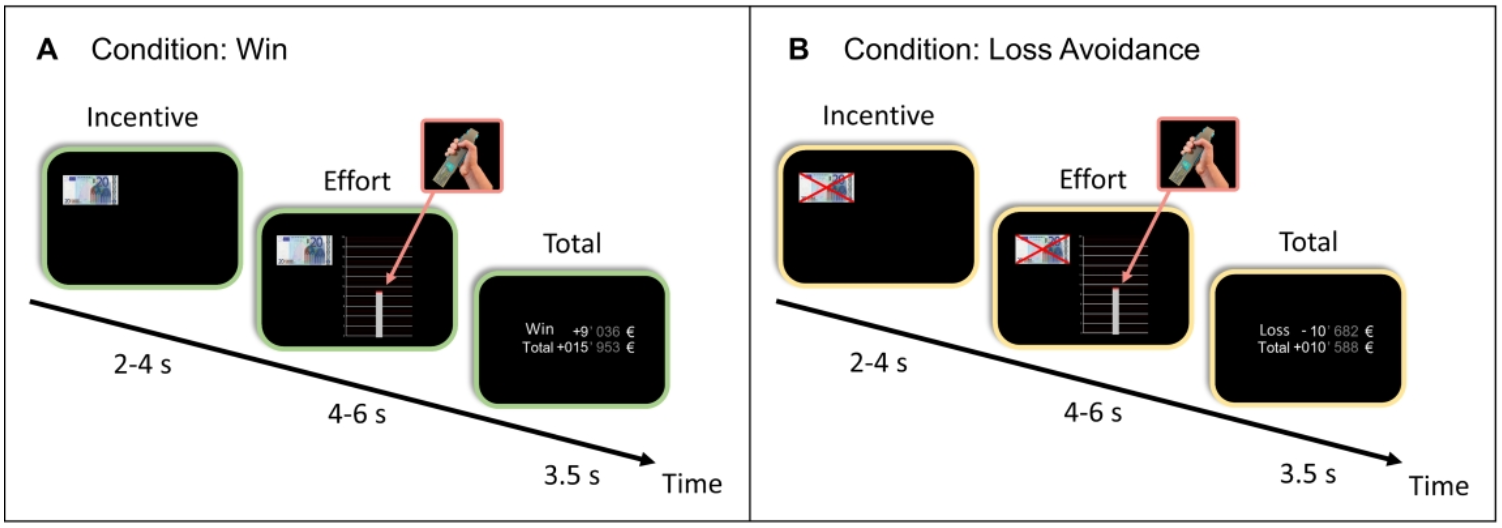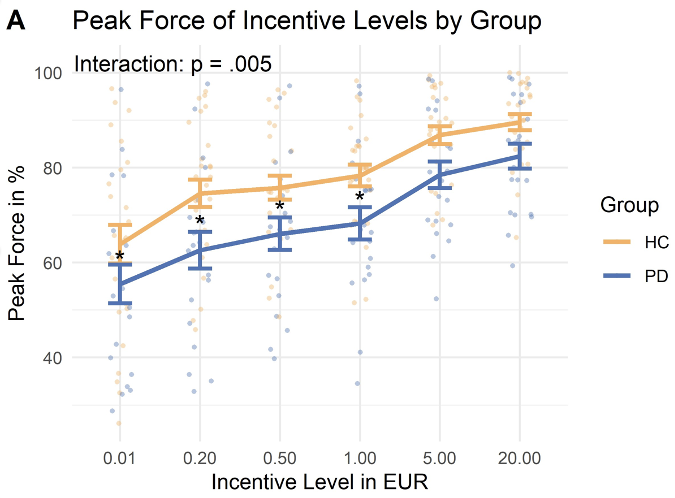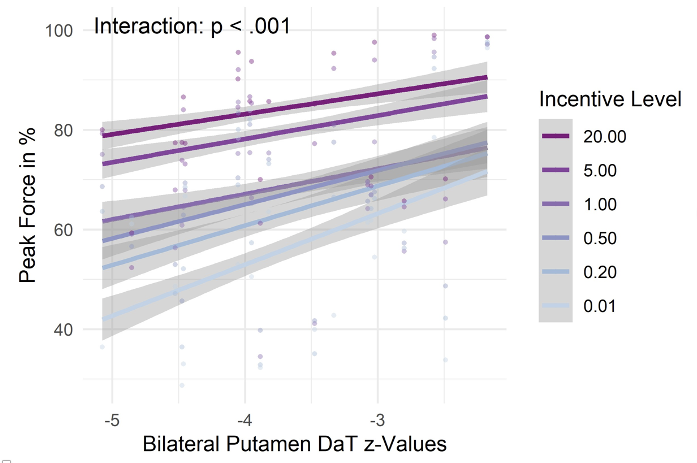Category: Parkinson's Disease: Pathophysiology
Objective: To investigate the quantitative effect of dopamine depletion on the motivation of motor effort in Parkinson’s disease.
Background: The relative inability to produce effortful movements (akinesia) is the most specific motor sign of Parkinson’s disease. The motor motivation hypothesis suggests that akinesia may not reflect a deficiency in motor control per se, but a deficiency in motivation for motor effort.
Method: 21 patients with Parkinson’s disease and 26 matched healthy controls were included. An incentivized force task [figure1] was used to capture the amount of effort participants were willing to invest for different monetary incentive levels and dopamine transporter depletion in the bilateral putamen was assessed.
Results: We demonstrate that patients with Parkinson’s disease applied significantly less grip force than healthy controls, especially for low incentive levels [figure2]. Congruously, decrease of motor effort with greater loss of putaminal dopaminergic terminals was most pronounced for low incentive levels [figure3]. This signifies that putaminal dopamine is most critical to motor effort when the trade-off with the benefit is poor.
Conclusion: Taken together, we provide direct evidence that the reduction of effortful movements in Parkinson’s disease depends on motivation and that this effect is associated with putaminal dopaminergic degeneration.
Behavioral incentivized force task
Peak grip force in PD and HC per incentive level
Interaction: grip force, DA and incentive level
To cite this abstract in AMA style:
M. Banwinkler, V. Dzialas, L. Rigoux, H. Theis, A. Asendorf, K. Giehl, M. Tittgemeyer, M. Hoenig, T. van Eimeren. Putaminal dopamine modulates movement motivation in Parkinson’s disease [abstract]. Mov Disord. 2024; 39 (suppl 1). https://www.mdsabstracts.org/abstract/putaminal-dopamine-modulates-movement-motivation-in-parkinsons-disease/. Accessed July 15, 2025.« Back to 2024 International Congress
MDS Abstracts - https://www.mdsabstracts.org/abstract/putaminal-dopamine-modulates-movement-motivation-in-parkinsons-disease/



